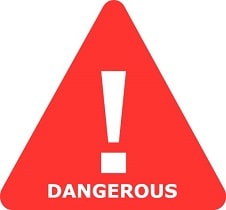Is EINECS 283-473-8 Safe in Breastfeeding
Question
I am a breastfeeding mother and i want to know if it is safe to use EINECS 283-473-8? Is EINECS 283-473-8 safe for nursing mother and child? Does EINECS 283-473-8 extracts into breast milk? Does EINECS 283-473-8 has any long term or short term side effects on infants? Can EINECS 283-473-8 influence milk supply or can EINECS 283-473-8 decrease milk supply in lactating mothers?
EINECS 283-473-8 lactation summary

- DrLact safety Score for EINECS 283-473-8 is 7 out of 8 which is considered Dangerous as per our analyses.
- A safety Score of 7 indicates that usage of EINECS 283-473-8 may cause toxic or severe side effects in breastfed baby.
- Our study of different scientific research indicates that EINECS 283-473-8 may cause moderate to high side effects or may affect milk supply in lactating mother.
- Our suggestion is to use safer alternate options rather than using EINECS 283-473-8 .
- Usage of EINECS 283-473-8 is in contradiction to breastfeeding hence if it is must to use EINECS 283-473-8 and there is no better alternative available then breastfeeding shall be stopped permanently or temporarily.
- Score calculated using the DrLact safety Version 1.2 model, this score ranges from 0 to 8 and measures overall safety of drug in lactation. Scores are primarily calculated using publicly available case studies, research papers, other scientific journals and publically available data.
Answer by Dr. Ru: About EINECS 283-473-8 usage in lactation
Roots and bark are used. It contains Berberine that may be a cause of gastritis, nephritis, phototoxicity and severe jaundice by displacement of albumin -linked bilirubin: higher risk of kernicterus to newborns, which is greater in cases of 6-Glucose-PD deficiency. It is popularly widely used, however, its effectiveness has not been shown. Use not approved by the Commission E of German Ministry of Health. It should be avoided.
